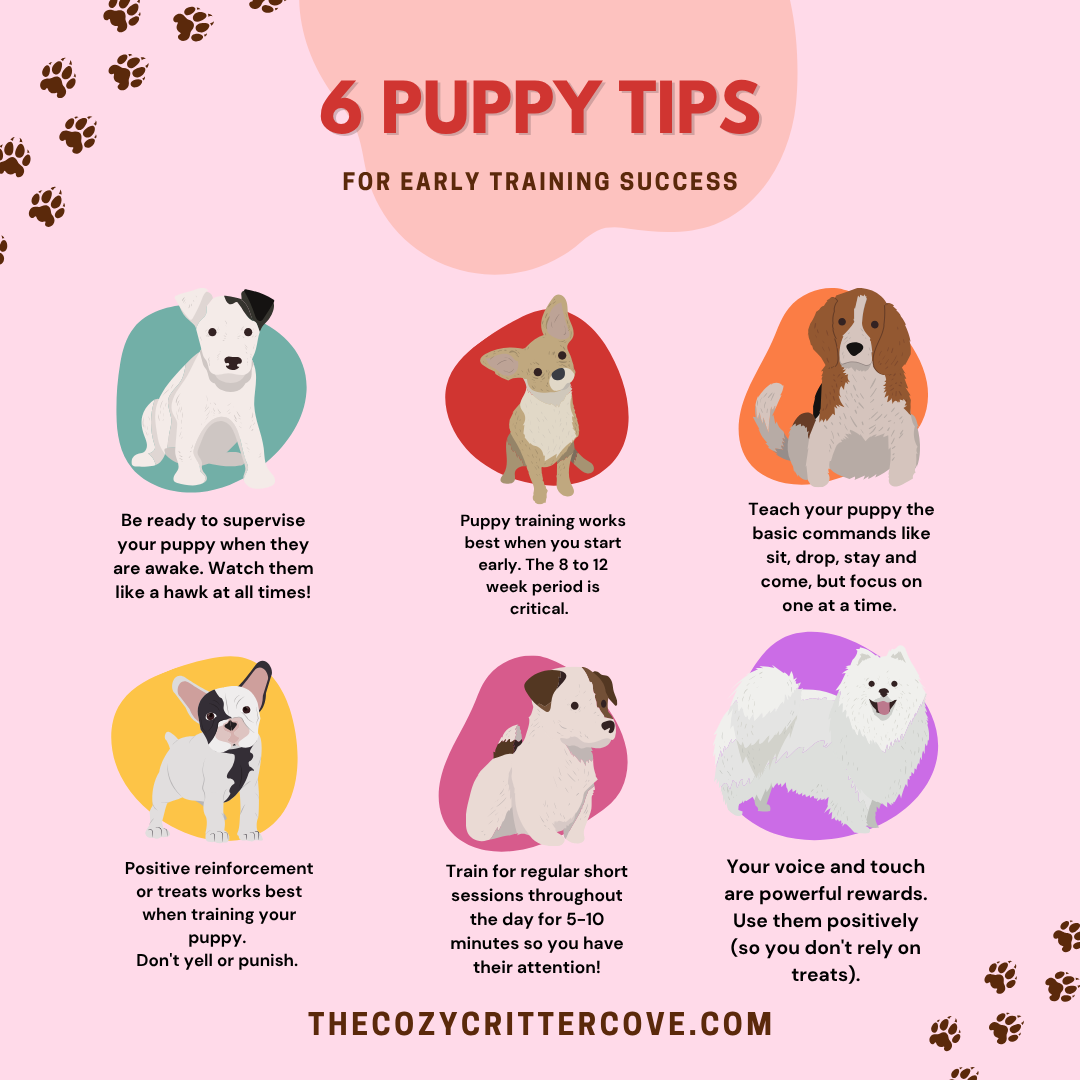
6 New Puppy Tips
Share
1. Supervise Your Puppy When Awake
Young puppies are curious and can quickly get into mischief—especially during teething or exploration sessions. Supervision helps prevent accidents like chewing on hazardous objects, ingesting harmful items, or encountering unsafe areas. Close observation ensures you can intervene promptly when needed. Creating puppy-safe zones and offering safe chew toys can also reduce risks.AVSAB+1
2. Begin Training Early—The 8–12 Week Window Is Critical
This timeframe is part of a broader socialization and learning period typically spanning 3 to 14 weeks, during which puppies are most receptive and curious about new experiences. Missing positive exposure during this phase increases the risk of behavioral issues later in life, such as fear or aggression.UC Davis School of Veterinary Medicine+2MDPI+2
The “fear period” between approximately 8 and 10 weeks makes gentle, positive exposures especially vital.Wikipedia+13PetMD+13Ask A Vet+13
3. Teach Basic Commands One at a Time
Start with simple cues like sit, come, drop, or stay—one at a time. Use short, focused sessions and repetition to build reliable responses. Puppies can begin to recognize their name, respond to leash guidance, and adapt to basic commands even before full vaccinations—as long as exposures remain safe and low-stress.Ask A Vet+1
4. Use Positive Reinforcement—Avoid Yelling or Punishment
Reward-based methods (e.g., treats, praise, or play) are far more effective and humane than punishment-based approaches. They reduce stress, foster trust, and lead to faster learning with long-lasting behavior retention. Scientific studies confirm that reward-based training encourages better performance, stronger bonds, and lower anxiety than aversive techniques.Pets Aloud Veterinary+15Northwoods Animal Shelter+15PetRadar+15
Positive reinforcement leverages operant conditioning principles—behaviors followed by rewards are more likely to recur.Wikipedia+1
5. Train with Regular Short Sessions (5–10 Minutes)
Puppies have brief attention spans. Short, frequent sessions throughout the day help maintain focus, reinforce correct behaviors, and ensure training doesn’t overwhelm your furry friend. Regular, bite-sized training supports consistency and reinforces learning effectively.The Spruce Pets+7Ask A Vet+7The Spruce Pets+7
6. Praise and Touch Are Powerful Rewards
While treats are helpful initially, using vocal praise and gentle physical affection (like petting) can be just as motivating—especially as puppies learn that these interactions follow desirable behavior. Pairing praise or touch with treats initially helps build positive associations. Eventually, you can rely more on praise and petting alone.Spot Pet InsuranceWikipediaAmerican Kennel Club
